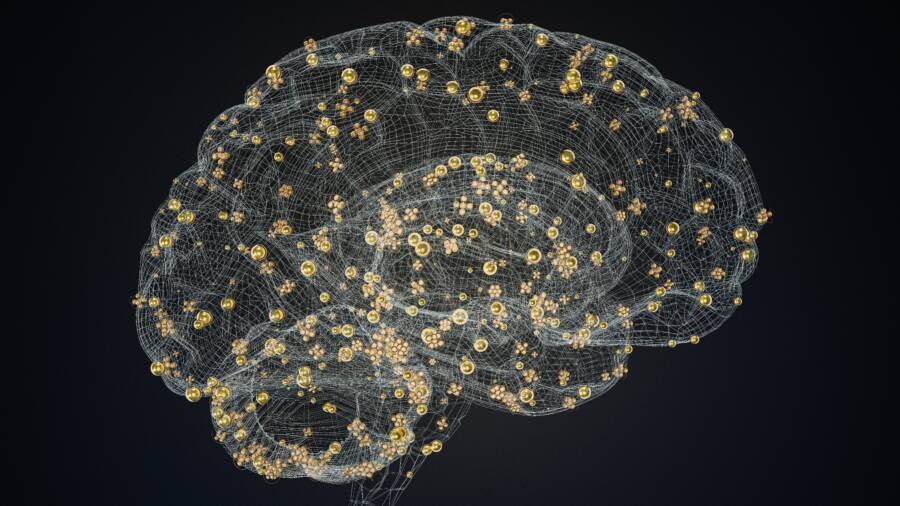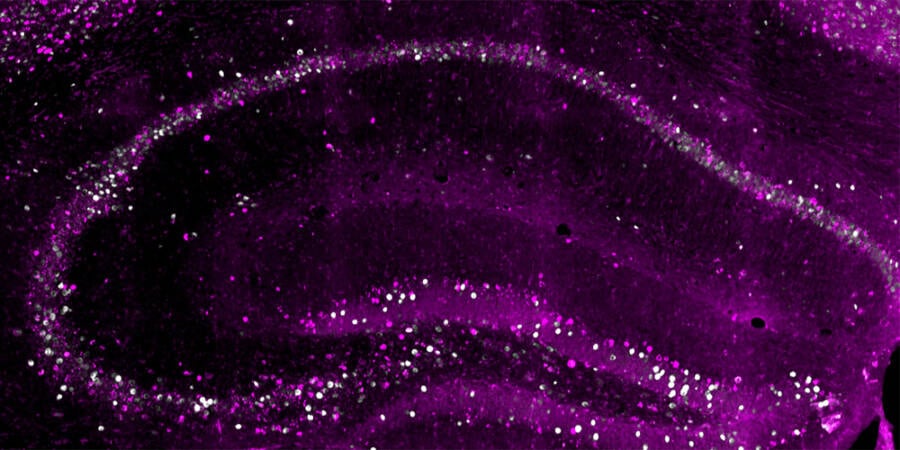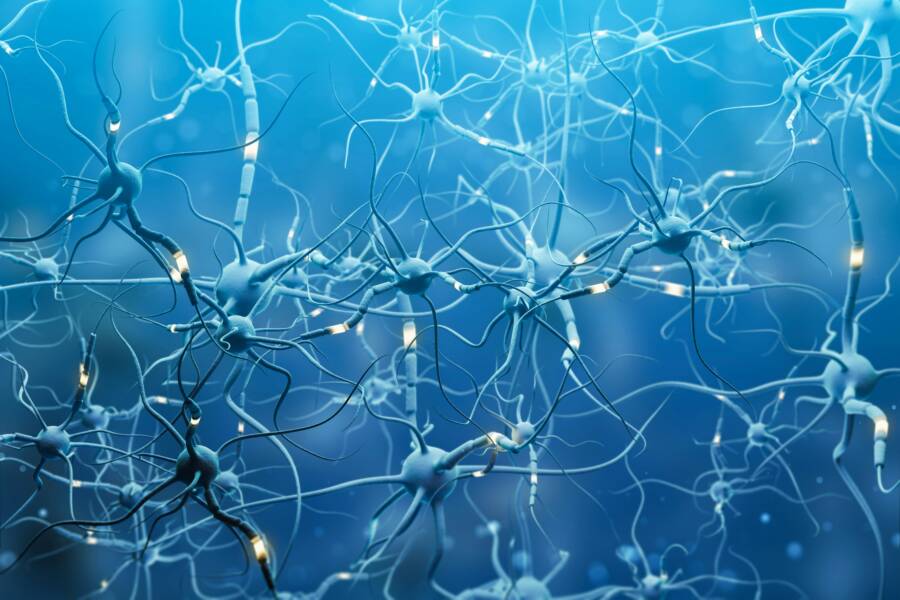The study from the University of Basel found that a single memory is encoded in at least three parallel "copies" in the hippocampus, enabling the brain to store, modify, and delete them over time.

UnsplashA 3D-rendering of the human brain.
Recently, researchers at the University of Basel in Switzerland conducted a study on mouse brains to determine how the brain creates, stores, and alters memories.
Through their research, the team discovered that the memory-making center of the brain contains at least three groups of neurons, each of which creates and stores memories in different ways.
The researchers found that each new memory is encoded into the brain at least three times in different copies across these neuron groups. This research is the first to identify this memory-making mechanism, and its findings hold promise for future research.
Scientists Study Memory-Making In Mouse Brains

University of Basel, BiozentrumNeurons in the hippocampus of a mouse.
At the University of Basel in Switzerland, Professor Flavio Donato and his team studied the brains of mice to explore how the brain creates and stores memories.
His team found that a single memory is stored by three different classes of neurons in the hippocampus, a region of the brain responsible for learning and memory-making. Each of these groups emerges at a different stage of embryonic development.
The first group of neurons are called early-born neurons. These neurons make a memory copy that at first is too weak for the brain to access, but that becomes stronger and stronger over time.
In contrast, late-born neurons create strong copies of memories that fade over time. Eventually, these memories can become inaccessible to the brain.
Then, there is a middle ground. These middle stage neurons create stable copies of memories that are not as easily forgotten or as hard to access after they’ve been made.
In the brain, memories encoded in the late-stage neurons are typically more malleable, and are more likely to change as time passes; remembering something immediately after it has happened activates the memory in the late-stage neurons and integrates new information into the original memory.
In contrast, remembering the same event over a long period of time activates the early-born neurons without altering the memory in any significant way.
“How dynamically memories are stored in the brain is proof of the brain’s plasticity, which underpins its enormous memory capacity,” Vilde Kveim, an author of the study published in Science, stated in a university press release.
Possibilities For Further Research Into The Brain Making Three Copies Of Each Memory

UnsplashAn artistic representation of neurons firing in the brain.
This new study suggests that how and when specific copies of memories are activated can have a huge impact on how we experience those memories, and how they change over time.
“The challenge the brain faces with memory is quite impressive,” Professor Donato stated in the press release. “On one hand, it must remember what happened in the past, to help us make sense of the world we live in. On the other, it needs to adapt to changes happening all around us, and so must our memories, to help us make appropriate choices for our future.”
If these findings also apply to humans, it could help researchers develop treatments for specific memory-related disorders like PTSD or dementia by targeting different neuron groups.
With more research on the horizon, scholars can dive into the question of why some memories are stronger than others, and why some follow us for a lifetime — for better or for worse.
After reading about how the brain creates memories, dive into the story of how Albert Einstein’s brain was stolen after his death. Then, read about the curious case of Phineas Gage, the 19th-century railroad worker whose personality changed drastically after an iron rod went through his brain.





